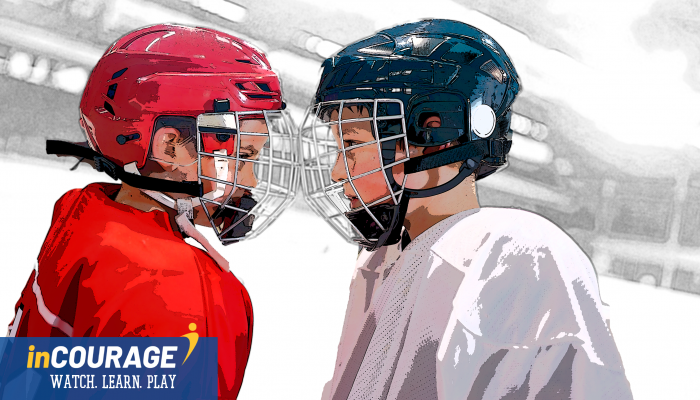“What do you do when the coach allows bullying?” a distraught parent asked us recently. “What do you do when the bully is the coach’s favorite player?”
This is an emotional and difficult situation for children and parents alike. It’s upsetting for any parent to discover that the positive aspects of their child’s sports participation are being overshadowed for any reason, but discovering your child is being bullied is another level of heartbreak. The potential impact of bullying on the child is devastating: depression, anxiety, and loss of interest in activities, including sports.
If your child tells you they are being bullied, it’s easy to get angry or frustrated, but it’s important for you to not overreact. Your child needs you to listen, reassure, and support them while reminding them it’s not their fault, they are not alone, and that you are there to help them. Praise and thank your child for coming to you with this information and reassure them that you will find a way to address it together.
To begin addressing this concern, it’s important to note that every state in our country mandates that public school staff members follow a specific protocol when a student reports that they are being bullied. It doesn’t make any difference if the bullying takes place in a classroom, in a cafeteria, or on an athletic team. There are guidelines that direct how staff members, including coaches, must handle the complaint.
(The guidelines are often posted on the school district’s website. We strongly suggest that every parent and student familiarize themselves with them. The student’s guidance counselor should have a copy as well.)
Obviously, if a student is being verbally or physically abused or socially isolated by anyone, this is a great concern—and something that should definitely be shared with school authorities. It would be very disturbing if the coach indeed is ignoring any kind of bullying behavior on the part of any team member—whether that team member is a great athlete or not. Also to be considered, if this is something that all the senior team members are involved in, it may fall under the label of hazing which can be just as devastating to the victim.
Under normal circumstances, I would suggest that the athlete meet first with the coach or possibly with the athletic director to share examples of what they are experiencing and how it makes them feel.
But there are many factors to consider: the emotional state of the student, the culture that exists in that particular program and/or school, and the relationship between the athlete, parent and coach.
Regardless of the circumstances, you should talk with your child about empowering strategies they can use, such as creating a plan that plays to their strengths and abilities. If your child is worried that they won’t be able to adequately speak up for themselves, have them write down notes and practice. In fact, it’s important to write down or document as much as you can of the bullying behavior. This record is useful when you’re talking with their coach or anyone else who may need to intervene.

If you are dealing with bullying and believe the coach is part of the problem, I suggest that you inform the principal of what is going on and request a meeting about your bullying concerns. You should also request that the principal require the coach and athletic director attend the meeting as well, so they can hear from you and your child first-hand.
Prior to attending the meeting, you should work with your child to make sure they:
- Have examples ready that describe the type of bullying behavior they are experiencing.
During the meeting you and your child should:
- Avoid generalizations when talking about bullying behavior.
- Describe the specific abusive behavior, when they experienced it, and the coach’s response.
- Your child needs to be honest about how the abusive behavior made them feel and why they need their coach’s help
After the meeting you should:
- Set up a date for a follow-up meeting date to determine if the problem has been resolved or is still occurring.
- Stay on top of your child’s feelings about the situation—if they still feel threatened you need to be prepared to ask for further action from the coach and school.
Coaches have the power and responsibility to shape a team culture that reduces the likelihood of bullying occurring. How they treat their players—including the personal conduct they choose to ignore or tolerate—will eventually become the standard that their team members use when interacting with each other. By working as a team to come to a resolution, you, your child, and your coach can create a foundation of trust to build on in the future.
Want more on how to deal with bullying?
Spot and Stop Bullying and Hazing.
Cyberbullying Is a Real and Present Danger. The Solutions Are Real, Too.
incourage.com is your destination for research-based guidance and evidence-based solutions. Check-in and see even more related content, including free videos and other, evidence-based tools.
We hear many questions from parents, coaches, and players about the issues they face—some are inspiring, and others are heartbreaking. While every team is a unique collection of people and personalities, many of the issues they face are common.
Are you a coach, parent or athlete struggling with a sports-related issue? Reach out to us at info@incourage.com, and for help right now, download our Playbook with straightforward answers to questions about bullying and hazing, below.



